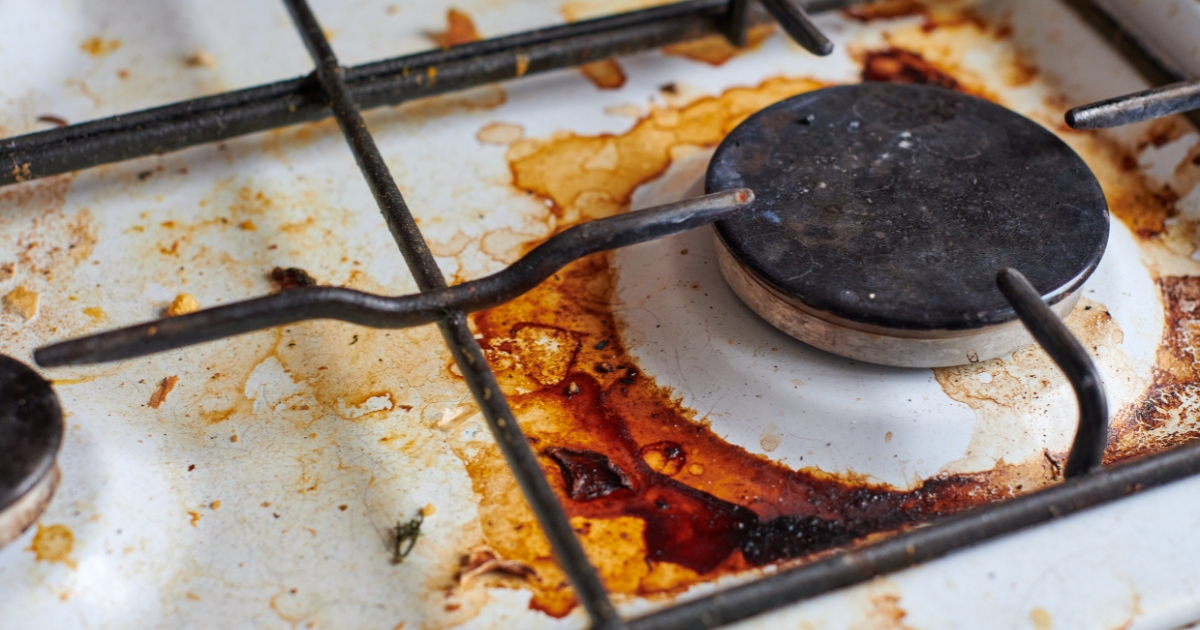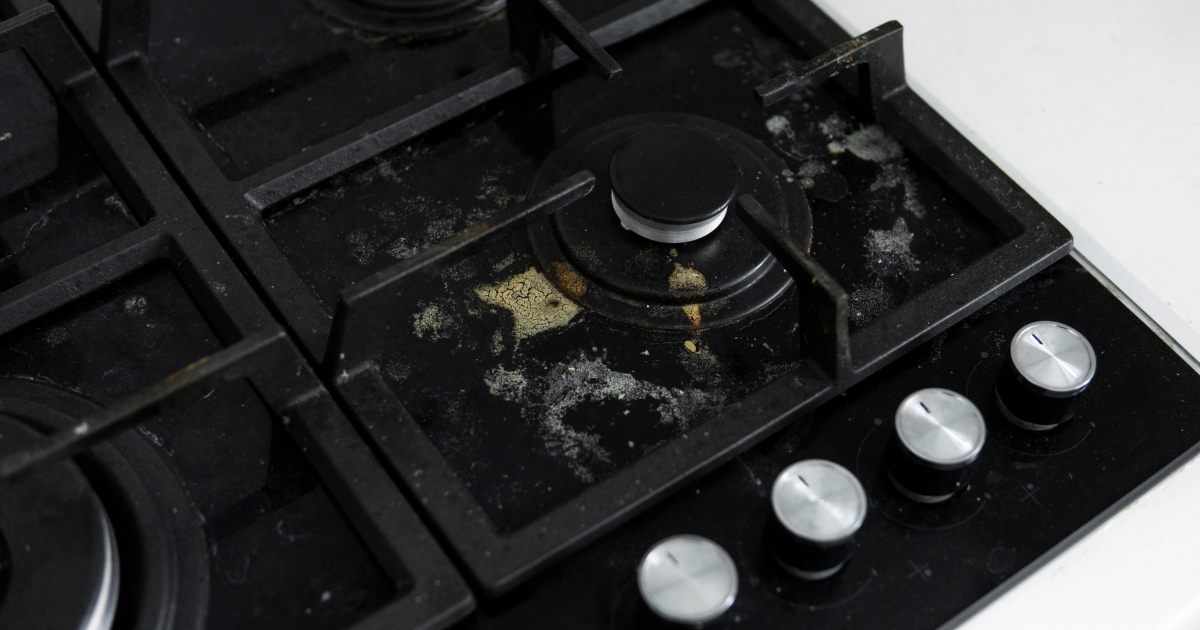Appliance Repair in Bakersfield

Your stove is the heart of your kitchen, the place where countless meals are prepared, and family memories are made. But like any hardworking appliance, it can eventually show signs of wear and tear, signaling that its time might be drawing to a close. Recognizing these warning signs early can help you plan for a replacement and avoid the sudden inconvenience of a completely broken stove. This guide from Strong Arm Appliance Repair will walk you through the telltale signs that your stove might be on its last legs.
Common Indicators of a Failing Stove
Determining if your stove is truly “bad” involves looking beyond just whether it turns on. Several performance issues and physical signs can indicate a decline in its functionality and lifespan. These can range from inconsistent heating and malfunctioning burners to electrical problems and visible damage. Understanding these indicators will help you make an informed decision about whether repair is still a viable option or if it’s time to consider a replacement.
Strong Arm Appliance Repair: Your Trusted Appliance Service
If you’re experiencing any of the issues mentioned below or have concerns about the performance of your stove, don’t hesitate to reach out to the experts at Strong Arm Appliance Repair Map Location. We provide reliable diagnostics and repair services for all types of stoves. Our experienced technicians can assess the condition of your appliance and provide honest advice on whether repair or replacement is the best course of action
Key Takeaways
Inconsistent Heating: Burners take too long to heat up, don’t reach the desired temperature, or have hot and cold spots.
Malfunctioning Burners: Some burners fail to ignite or stay lit on a gas stove, or electric burners don’t heat at all.
Faulty Oven Heating: The oven doesn’t reach the set temperature, heats unevenly, or the broiler doesn’t work.
Electrical Problems: Sparking, flickering lights when the stove is in use, or the stove tripping your circuit breaker.
Strange Noises: Unusual buzzing, clicking, or popping sounds coming from the stove during operation.
Visible Damage: Cracks on the glass cooktop, damaged heating elements, or significant rust or corrosion.
Age of the Appliance: Stoves typically have a lifespan of 10-15 years. Older units are more prone to breakdowns.
Cost of Repairs: If frequent repairs are needed or the estimated cost of repair is significant compared to the cost of a new stove, replacement might be more economical.
When to Call Strong Arm Appliance Repair: If you notice any of these signs, especially electrical issues or inconsistent heating that affects cooking safety, contact Strong Arm Appliance Repair for professional diagnosis and service.
Inconsistent Heating
One of the primary functions of a stove is to provide consistent and reliable heat. When your burners or oven start to behave erratically, it’s a strong indication that something is wrong.
Burner Issues (Gas): If your gas burners take an unusually long time to ignite, produce a weak or uneven flame (yellow instead of blue), or fail to reach the desired temperature, it could signal a problem with the gas valve, igniter, or burner ports.
Burner Issues (Electric): For electric stoves, burners that are slow to heat up, have noticeable hot and cold spots, or cycle on and off erratically might have a faulty heating element or a problem with the control switch.
Oven Issues: An oven that takes a long time to preheat, doesn’t maintain the set temperature, cooks food unevenly, or has a broiler that doesn’t work correctly could have a malfunctioning heating element, faulty thermostat, or a problem with the oven sensor.
Malfunctioning Burners
When individual burners start to fail completely, it significantly reduces the functionality of your stove.
Gas Burners Not Igniting: If a gas burner clicks but doesn’t light, the igniter might be faulty. If it doesn’t click at all, there could be a problem with the spark module or the power supply. A buildup of debris around the burner ports can also prevent ignition.
Electric Burners Not Heating: If an electric burner doesn’t heat up at all, the heating element is likely burned out and needs to be replaced. Sometimes, the issue could also be with the corresponding control switch on the stovetop.
Faulty Oven Heating
Problems with the oven’s heating can lead to undercooked, overcooked, or unevenly baked or roasted dishes.
Oven Not Reaching Temperature: If your oven consistently fails to reach the set temperature, the oven sensor or the thermostat might be faulty.
Uneven Baking: Hot spots or consistently undercooked areas in your baked goods can indicate a problem with the heating elements or the oven’s internal airflow.
Broiler Not Working: A malfunctioning broiler element might be burned out or there could be an issue with the control system that activates it.
Electrical Problems
Electrical issues are a serious concern and should be addressed immediately.
Sparking or Flickering Lights: If you notice sparking around the stovetop or flickering lights in your kitchen when the stove is in use, it could indicate a loose or damaged wire, which is a fire hazard.
Tripping Circuit Breaker: If your stove repeatedly trips the circuit breaker, it suggests an overload or a short circuit within the appliance.
No Power: If the entire stove suddenly loses power and doesn’t respond, there could be a problem with the power cord, the main electrical connection, or an internal electrical component. Do not attempt to troubleshoot these issues yourself; contact a qualified electrician or appliance repair technician immediately.
Strange Noises
Unusual sounds coming from your stove during operation can be a sign of underlying mechanical or electrical problems.
Buzzing or Humming: A persistent buzzing or humming sound might indicate a problem with a transformer or another electrical component.
Clicking: While clicking is normal for gas stove igniters, continuous or unusual clicking could indicate a malfunction.
Popping: Popping sounds might be due to thermal expansion, but if they are frequent or accompanied by other issues, it warrants investigation.
Visible Damage
Physical damage to your stove can not only affect its appearance but also its functionality and safety.
Cracked Glass Cooktop: A crack in a glass cooktop can be dangerous and can impair the heating performance. It’s usually necessary to replace the entire cooktop.
Damaged Heating Elements: Bulging, warped, or visibly broken electric heating elements need to be replaced.
Rust or Corrosion: Significant rust or corrosion, especially on critical components, can indicate that the structural integrity of the stove is compromised.
Age of the Appliance
Like all appliances, stoves have a limited lifespan. While some may last longer with proper care, most stoves are designed to function reliably for around 10 to 15 years. If your stove is approaching or exceeding this age and is starting to experience frequent problems, it might be more cost-effective to replace it with a newer, more energy-efficient model.
Cost of Repairs
When your stove starts to malfunction, you’ll naturally consider repairs. However, it’s important to weigh the cost of these repairs against the cost of a new stove, especially if your current appliance is old. If the estimated repair costs are a significant percentage of the price of a new stove, or if the appliance requires frequent repairs, replacement is often the more sensible long-term solution.
When to Call Strong Arm Appliance Repair
If you notice any of the signs mentioned above, especially electrical issues, significant heating inconsistencies, or complete burner/oven failure, it’s time to call the professionals at Strong Arm Appliance Repair. Our experienced technicians can provide an accurate diagnosis of your stove’s condition and offer the best course of action, whether it’s a repair to extend its lifespan or advice on choosing a suitable replacement. Your safety and satisfaction are our top priorities.
Contact Us
For reliable and professional stove repair and diagnostic services, contact Strong Arm Appliance Repair today!
FAQs
How long do stoves typically last? A standard electric or gas stove typically has a lifespan of around 10 to 15 years, depending on the brand, usage, and maintenance.
What are the signs of a failing electric burner? Signs include the burner taking a long time to heat up, not reaching the desired temperature, having uneven heating (hot and cold spots), cycling on and off erratically, or not heating up at all. Visible damage like bulging or breaks in the element is also a clear sign of failure.
What are the signs of a failing gas burner? Signs include difficulty igniting, a weak or yellow flame (instead of blue), the flame not staying lit, or the burner not reaching the desired heat level. Unusual smells or sounds during operation can also indicate a problem.
Is it dangerous to use a stove with a cracked glass cooktop? Yes, it is generally dangerous to use a stove with a cracked glass cooktop. The crack can worsen with heat, potentially leading to further damage or even electrical shock if moisture enters the crack. It’s best to avoid using the damaged area and have the cooktop replaced.
When should I replace my stove instead of repairing it? Consider replacing your stove if it is older than 10-15 years, requires frequent repairs, if the cost of a necessary repair is a significant portion of the cost of a new stove, or if the issues involve critical safety components like electrical wiring or gas lines.
Can I fix a malfunctioning stove myself? Some minor issues, like cleaning burner ports on a gas stove, can be done yourself. However, most stove repairs, especially those involving electrical or gas components, should be handled by qualified professionals to ensure safety and proper functionality.
Why is my oven not heating to the correct temperature? This could be due to a faulty oven sensor, a malfunctioning thermostat, or a problem with the heating elements. Professional diagnosis is usually required to pinpoint the exact cause.
What should I do if I smell gas near my stove? If you smell gas, do not attempt to light the stove or any other appliances. Do not turn light switches on or off. Open windows and doors to ventilate the area and immediately call your gas company or the fire department from a safe location (outside your home).



